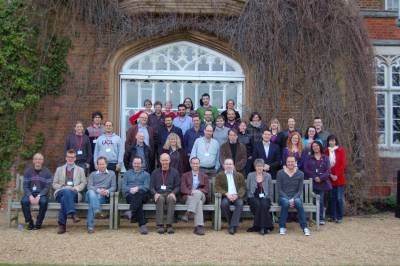Biological Sciences degrees
| Programme details | |
|---|---|
| Start date | September |
| UCAS code | BSc Biological Sciences C900 MSci Biological Sciences C901 |
| Duration | BSc 3 years Full Time |
| Location | UCL Bloomsbury |
Why study Biological Sciences at UCL?
Biological Sciences at UCL was ranked sixth in the world and first in London in the QS 2024 subject rankings.
You will have the opportunity to do a research project with a supervisor in a working laboratory, asking a cutting-edge question. Many students have gone on to publish their projects in science journals.
The flexible programme structure provides you with a sound foundation in year one across a range of scientific subjects. From year two you are able to choose an area in which to specialise in or can convert to an MSci degree. This is a unique opportunity to tailor your studies without losing focus from the main foundation of a science degree.
You will have the option of working at our Blakeney Point field station in Norfolk in year one. In year two, we run a field trip to the Lake District and an international field trip to the south of Spain. Students on the MSci Biodiversity and Conservation have the option to participate on a tropical field course in their final year.
- Students on the MSci programme will have the opportunity to spend their third year abroad. UCL has partner universities in Australia, Canada, Czech Republic, Denmark, Japan, New Zealand, Singapore, Switzerland and the United States.
- Our partnerships with the Natural History Museum, the Francis Crick Institute and the Zoological Soceity of London mean that not only will you be able to attend lectures from experts from these institutions, there may also be an opportunity to undertake research projects in their facilities.
What is the difference between the BSc and the MSci?
- The BSc is a three-year programme whereas the MSci runs over four years.
Both programmes are identical in years one and two. In year three, students on the BSc programme will undertake one of three research project modules whereas students on the MSci programme will undertake an investigative project in Biological Sciences. Students on the MSci programme will undertake an extended research project in year four.
In year two, students can evaluate their programme choice and apply to change, depending on their marks in the programme to date. Students on the MSci programme must achieve certain results to stay in the programme or will be given the opportunity to move onto the BSc programme.
At the end of year two, only MSci students are able to enter the computational biology degree stream.
- In year three, MSci students will have the opportunity to spend a year abroad in one of our partner institutions based throughout the world.
Degree structure overview
Each year is made up of 120 credits in total. Modules (with the exception of research projects) are either 15 credits (run over one term) or 30 credits (usually run over two terms). Year one consists of six 15 credit compulsory modules and four 15 credit optional modules. This is the same for both BSc and MSci students. The compulsory modules offered will not only provide an excellent grounding across the sciences but will also allow you to find the areas about which you are passionate. Once you have completed year one, you will have gained sufficient experience in the programme to decide whether you will stay in the broad BSc/MSci Biological Sciences or if you would like to pursue one of the six more specialised degree options listed below.
In year two students transfer into one of seven degree options. Compulsory modules and the optional modules available will vary based on which stream students choose. Compulsory modules make up 75 to 90 credits of the second year. There is a large pool of optional modules run by both our department, other research departments in the Division of Biosciences and departments outside of the Biosciences such as Language modules.
In year three, students on the BSc programme will choose one of three project module options. Two of these projects are individual research projects and the third is a group-based research project. All research projects are under the supervision of an academic staff member. Depending on the project module chosen, students will select between 75 and 90 credits from a wide range of optional modules from across UCL.
A choice of seven degrees
Whilst all students enter this programme enrolled in the BSc Biological Sciences, at the end of year one students are able to choose one of six more specialised degree areas or to continue in the general BSc/MSci Biological Sciences.
The options are:
1. Biodiversity and Conservation
If you're passionate about environmental change this is the programme for you. This stream looks at the impact of humans on the planet’s biodiversity, the effect of pollution; and the overriding problems connected to climate change. It focuses on how organisms respond to a changing environment and how we can conserve the dwindling global biodiversity. Additional topics covered include plant and animal ecology, behaviour and evolution.
Please note: for students enrolling from September 2024 onwards, this route will be renamed to Biological Sciences: Biodiversity and Conservation
2. Biological Sciences: Cell Biology
The Cell Biology degree is designed for those students who wish to take a cellular and molecular approach to the study of biology. If you are planning to pursue a career in research or if you were struggling to choose between biochemistry and biological sciences this is the programme for you. If you feel that ultimately you might wish to aim for postgraduate entry into medicine, then this would provide a perfect background for you.
3. Biological Sciences: Computational Biology
UCL was the first university in the United Kingdom to offer an undergraduate degree in computational biology. Researchers in the biological sciences are increasingly having to handle larger data sets and run ever complex models. As such, computational methods are now core to developing our understanding of all biological systems.
NB: Only students on the MSci programme are able to pursue the Computational Biology degree.
4. Genetics
The Genetics degree will allow you to focus on range of areas in which genetics intersects with other aspects of biology and medicine. The core programme covers molecular genetics, genomics, model organisms, evolutionary genetics and human genetics. In addition, you will be able to choose from a range of options in the biological sciences, medicine, anthropology and social issues in the life sciences. A degree in Genetics will provide excellent preparation for postgraduate study in almost any area of life sciences and beyond.
Please note: for students enrolling from September 2024 onwards, this route will be renamed to Biological Sciences: Genetics
5. Human Genetics
The Human Genetics degree is suited for students with interests in the applications of genetics to human health and medicine. A degree in Human Genetics will provide excellent preparation for postgraduate study in almost any area of life sciences, but will be of particular value to students who are considering postgraduate entry into medicine or a PhD in any aspect of the vast field of human genetics, including medical research. While the second year compulsory modules are identical in Genetics and Human Genetics, the options available, particularly those in the Highly Recommended category, reflect a focus towards the more medically relevant aspects of modern genetics.
Please note: for students enrolling from September 2024 onwards, this route will be renamed to Biological Sciences: Human Genetics
6. Zoology
Zoology is the study of the behaviour, ecology, physiology and classification of all animals. This degree will appeal to students interested in the form and function of major groups of animals, evolutionary genetics, ecology, comparative cell biology and developmental studies. Practical teaching will involve the Grant Museum’s historical anatomical collections, London Zoo, and UCL's molecular laboratories. Those wishing to gain field experience have the opportunity to go to Spain and/or the Lake District to gain hands on experimental and observation skills.
Please note: for students enrolling from September 2024 onwards, this route will be renamed to Biological Sciences: Zoology
7. Biological Sciences
This is the degree in which you initially enrol and the broadest option. It is a flexible programme, allowing you to take a broader range of modules compared to our other six degree programmes. However, even within this degree, there is the opportunity to specialise within specific fields should you so wish.
Year one course content
Year one is a foundation year. There are six 15 credit compulsory modules. You also make a choice of two 15 credit optional modules from a list of four. The year one modules undertaken by Biological Sciences students are:
Compulsory Modules
BIOC0001 Biochemistry and Molecular Biology (15 credits)
BIOL0001 Quantitative Biology (15 credits)
BIOL0002 First Year Core Skills (0 credits, pass/fail)
BIOL0003 Introduction to Genetics (15 credits)
BIOL0004 Life on Earth (15 credits)
BIOL0006 Methods in Ecology and Evolution (15 credits)
CELL0007 Cells and Development (15 credits)
Optional Modules
Students will need to choose one of the following modules each term:
Term 1:
BIOL0005 Fundamentals of Biology (15 credits)
OR
CHEM0010 Chemistry for Biology Students (15 credits)
Term 2
BIOC0004 Introduction to Microbiology (15 credits)
OR
BIOL0055 Biodiversity and Conservation (15 credits)
Years two and three popular optional modules
In years two and three students have access to an extensive list of optional modules from multiple divisions within UCL from geology to anatomy and of course biological sciences and more. There is a full list of module options for each of the seven degree paths on their relevant web pages.
These are some of the most popular biological sciences modules on offer:
Year two
not running BIOL0012 Animal Biodiversity (15 credits)
BIOL0014 Fundamentals of Ecology (15 credits)
BIOL0030 Energy and Evolution (15 credits)
BIOL0051 Practical Experimental Evolution (15 credits)
BIOL0052 Comparative Cell Biology (15 credits)
Year three
BIOL0020 Sex, Genes and Evolution (15 credits)
BIOL0021 Advanced Human Genetics (15 credits)
BIOL0022 Biology of Ageing (15 credits)
BIOL0025 Regulatory Genomics and Evolution (15 credits)
BIOL0027 Diseases of Ageing (15 credits)
BIOL0032 Species Conservation and Biodiversity (15 credits)
BIOL0033 Molecular Evolution (15 credits)
BIOL0035 Vertebrate Life and Evolution (15 credits)
BIOL0042 Plant Evolution and Ecology (15 credits)
BIOL0048 Behavioural Ecology for the Anthropocene (15 credits)
Years two and three both total 120 credits.
Year three course content
For students on the BSc degree programmes, you are required to take one project module from a choice of three:
BIOL0018: Advanced Investigative Project in Biological Sciences (30 Credits)
OR
BIOL0019: Advanced Research Project in Biological Sciences (45 Credits)
OR
BIOL0056: Collaborative Research Project in Biological Sciences (30 Credits)
For students on the MSci programme you are required to take:
BIOL0044: MSci Investigative Project in Biological Sciences (30 Credits)
Optional Modules:
You are required to select between 75 and 90 credits (depending on the project selected and degree programme) from a wide range of optional modules in your chosen degree programme and from other approved disciplines within UCL.
Year four content (MSci only)
The fourth year will be largely centred on a supervised research project, occupying 75% of your time. You will also take advanced Master's level modules, providing extra depth and breadth of knowledge.
All students will undertake the compulsory project module BIOL0041 MSci Extended Research Project in Biological Sciences.
You will also select 30 credits from a wide range of compulsory or optional modules in your chosen degree and from other approved disciplines within UCL.
Year abroad
The Study Abroad programme for Biological Sciences is an optional pathway open to all students studying a Biological Sciences degree. Students on the BSc programme will be able to apply. However, if the application is successful, you will need to transfer onto the MSci programme. You will then spend the entirety of your third year in one of our partnership institutions after which you will return to UCL to complete your MSci.
Where can I go?
You can study at a number of partner universities abroad. Note that the list is subject to change each academic year.
What are the benefits of studying abroad?
Our Study Abroad programme gives you the opportunity to live in a different country and get immersed in new and exciting cultures.
During your time abroad, you will experience different ways of learning and make new academic contacts. Studying abroad allows you to take classes in topics that you cannot experience here at UCL or even the UK. Our students have taken modules which involved working on the Great Barrier Reef in Australia, the tropical rainforests in Malaysia, the Australian Outback and even wine making.
Details of the financial arrangements are shown on the UCL website.
Careers
Most of our Biological Sciences students (80%) are in employment or further study 15 months after finishing their degree and 90% of those in employment are in highly skilled work. (Graduate Outcomes 2020-2021).
Companies that have employed our graduates in recent years include Price Waterhouse Coopers, Public Health England, HSBC, XPS Pensions Group and the NHS. Our alumni can be found in areas such as journalism, the diplomatic services, the civil service, pharmaceutical companies, start-ups, financial companies and more.
In addition to science, we focus on teaching our students highly sought-after transferable skills from the first week of the programme. These include teamwork, problem-solving, critical thinking/evaluation, data literacy, analysis and visualisation, literacy, scientific reading, presentation training, written/verbal communication, IT skills and more. As well as the development of these skills within the formal structure of the programme, UCL provides many other opportunities for students to practice these skills in other environments. These include our student society, our entrepreneurship/start-up programmes and student/staff retreats. These opportunities provide students with examples of their abilities in the key skills sought by employers for their CV and to use in job interviews. These are the examples that can clearly differentiate recent graduates from the rest of the crowd and assist them in landing their first major career role.
Find out more about our graduate employability and earnings statistics at Discover Uni.
Useful careers resources:
My UCL Careers
UCL Neuroscience Careers Network
Innovation and Enterprise Training and Opportunities for Students
Professional Development Courses
Linked In Learning
Public Engagement Training
Public Policy Training
Our latest research
Genetics Institute
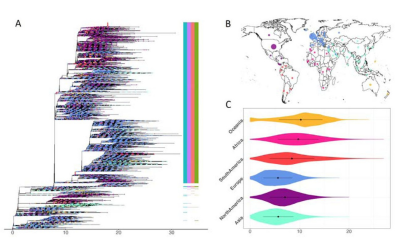
No evidence for increased transmissibility from recurrent mutations in SARS-CoV-2
Institute of Healthy Ageing
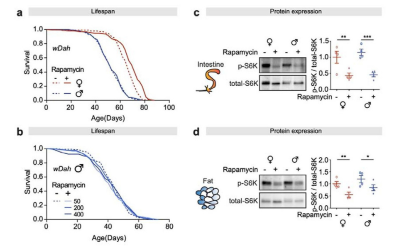
Sexual identity of enterocytes regulates rapamycin-mediated 2 intestinal homeostasis and lifespan extension
People and Nature Lab
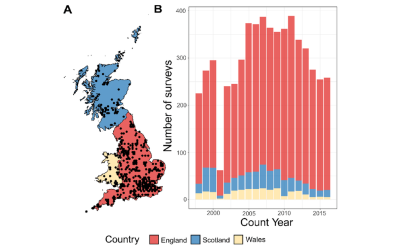
Accounting for spatial autocorrelation and environment are important to derive robust bat population trends from citizen science data
Centre for Biodiversity and Environment Research

Centre for Computational Biology
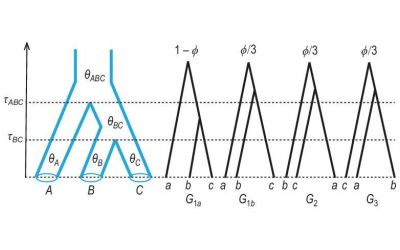
Centre for Life's Origins and Evolution
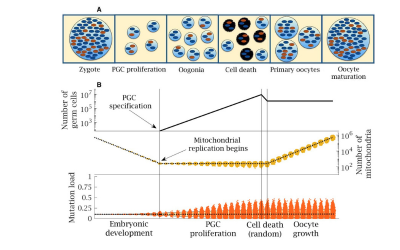
Find out more
For information on entry requirements, fees, how to apply and much more for both the BSc and MSci Biological Sciences please visit the appropriate Prospectus Page
 Close
Close



